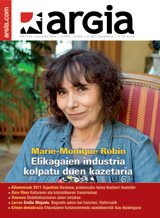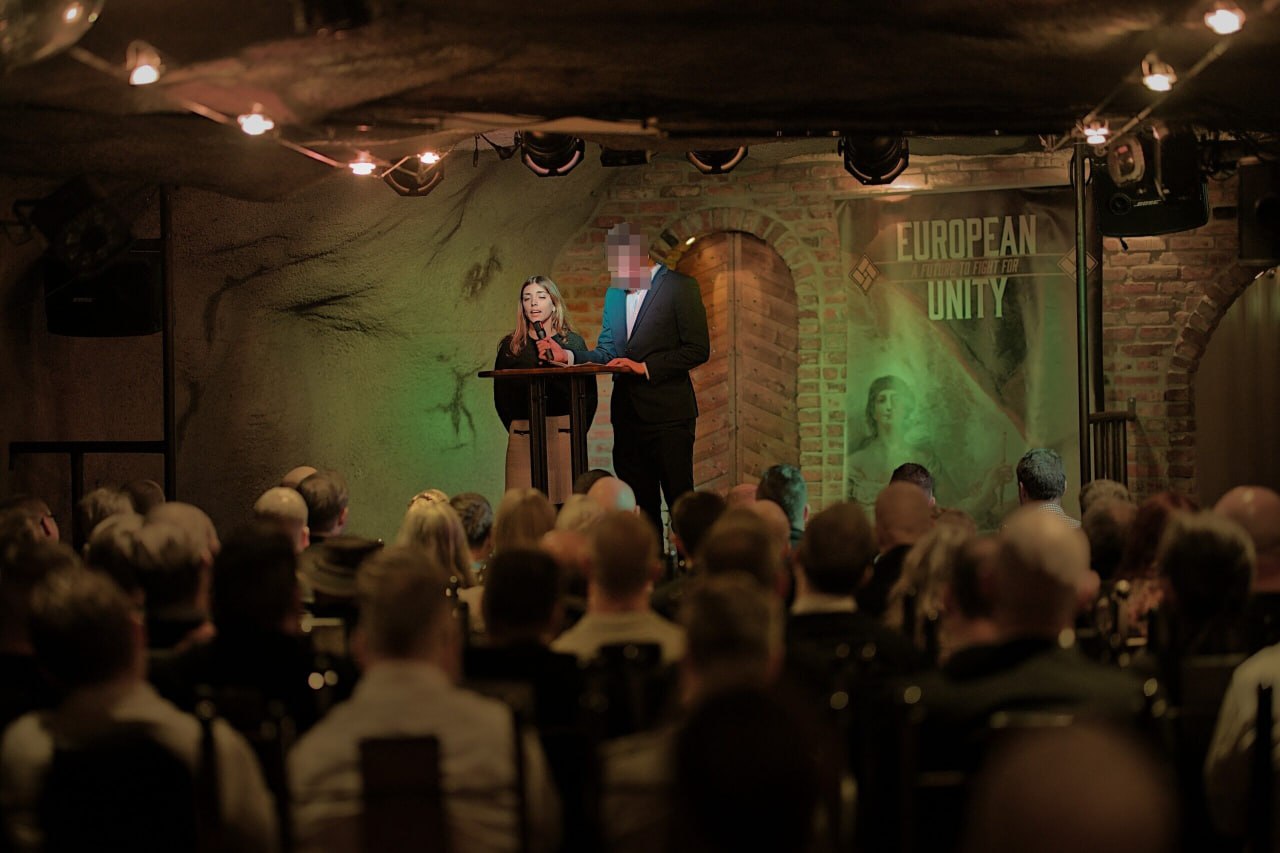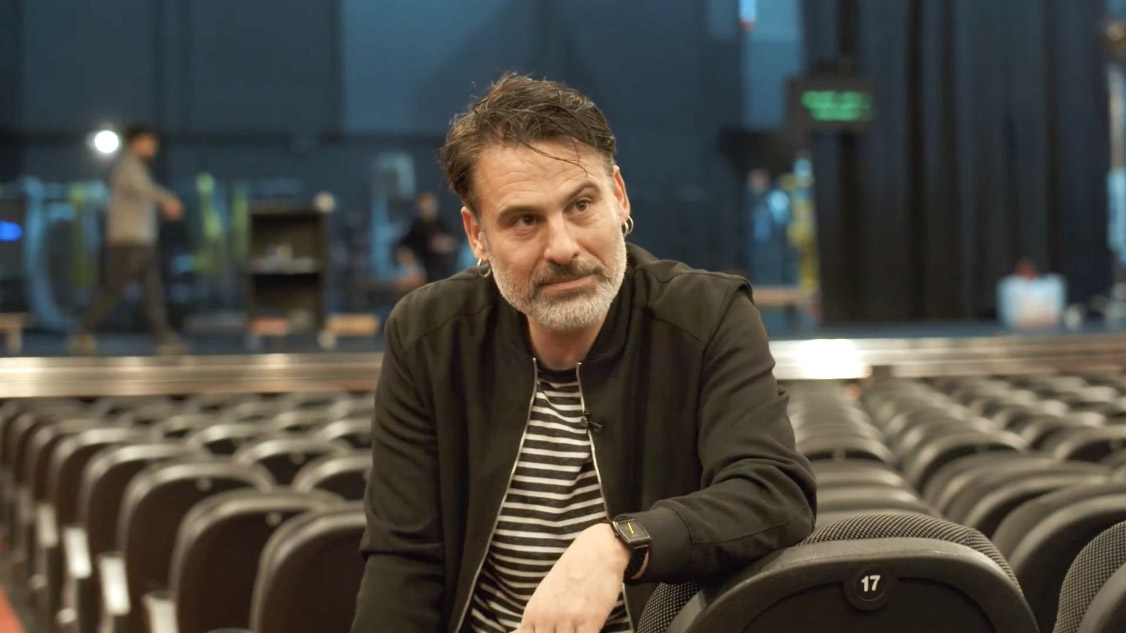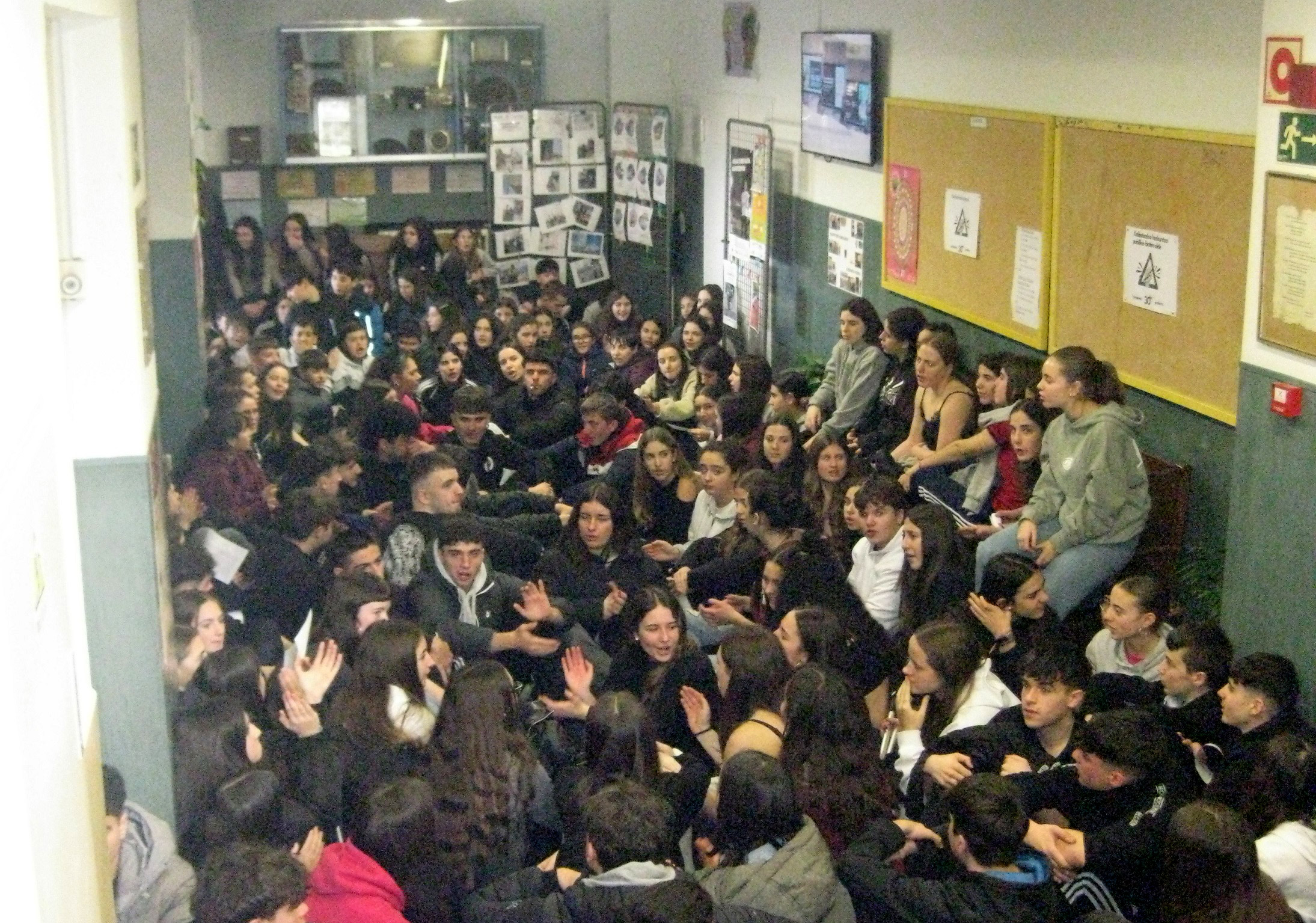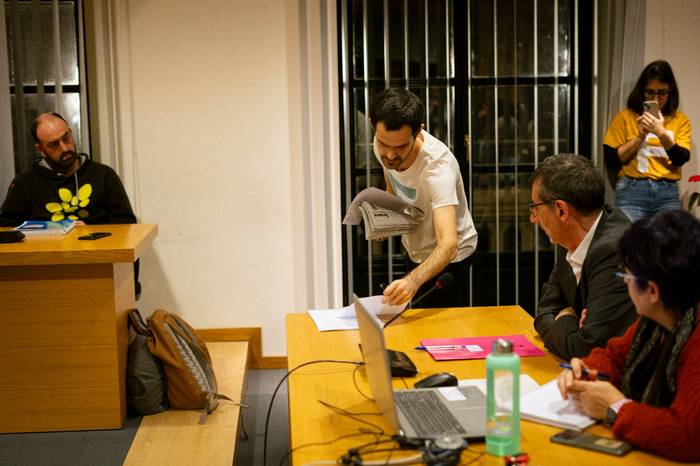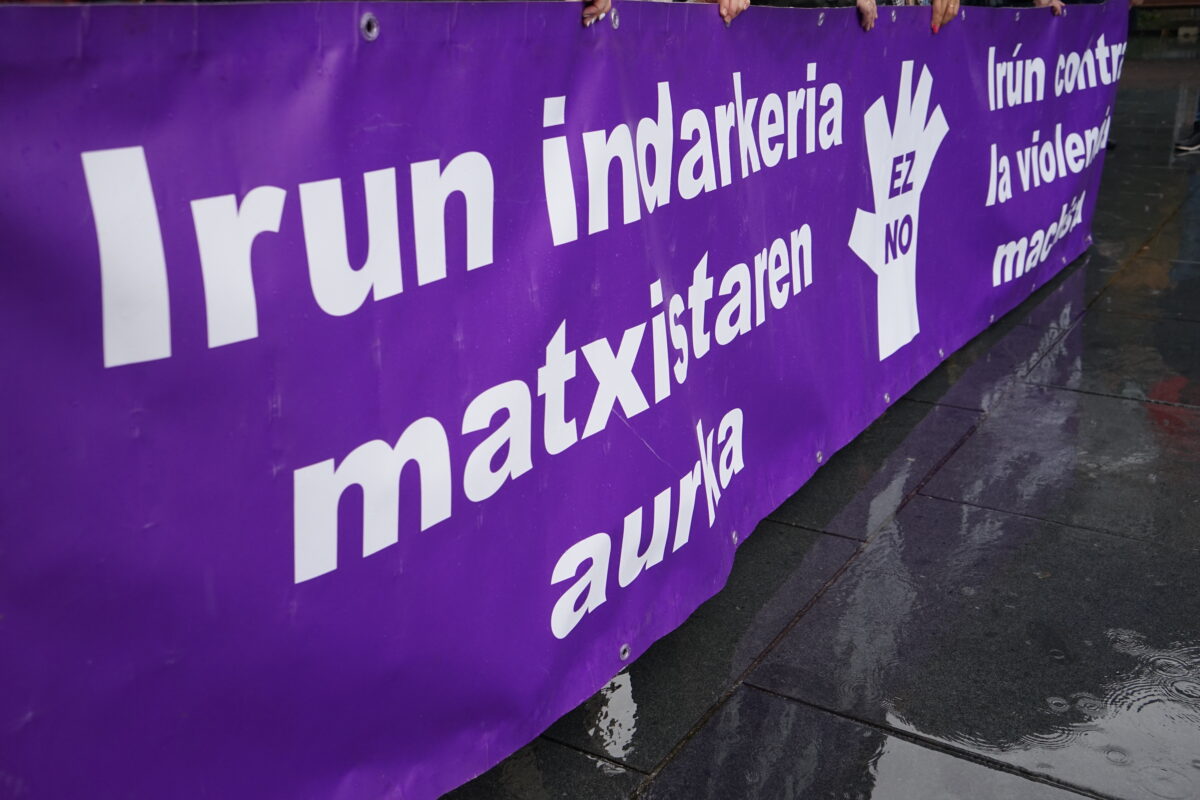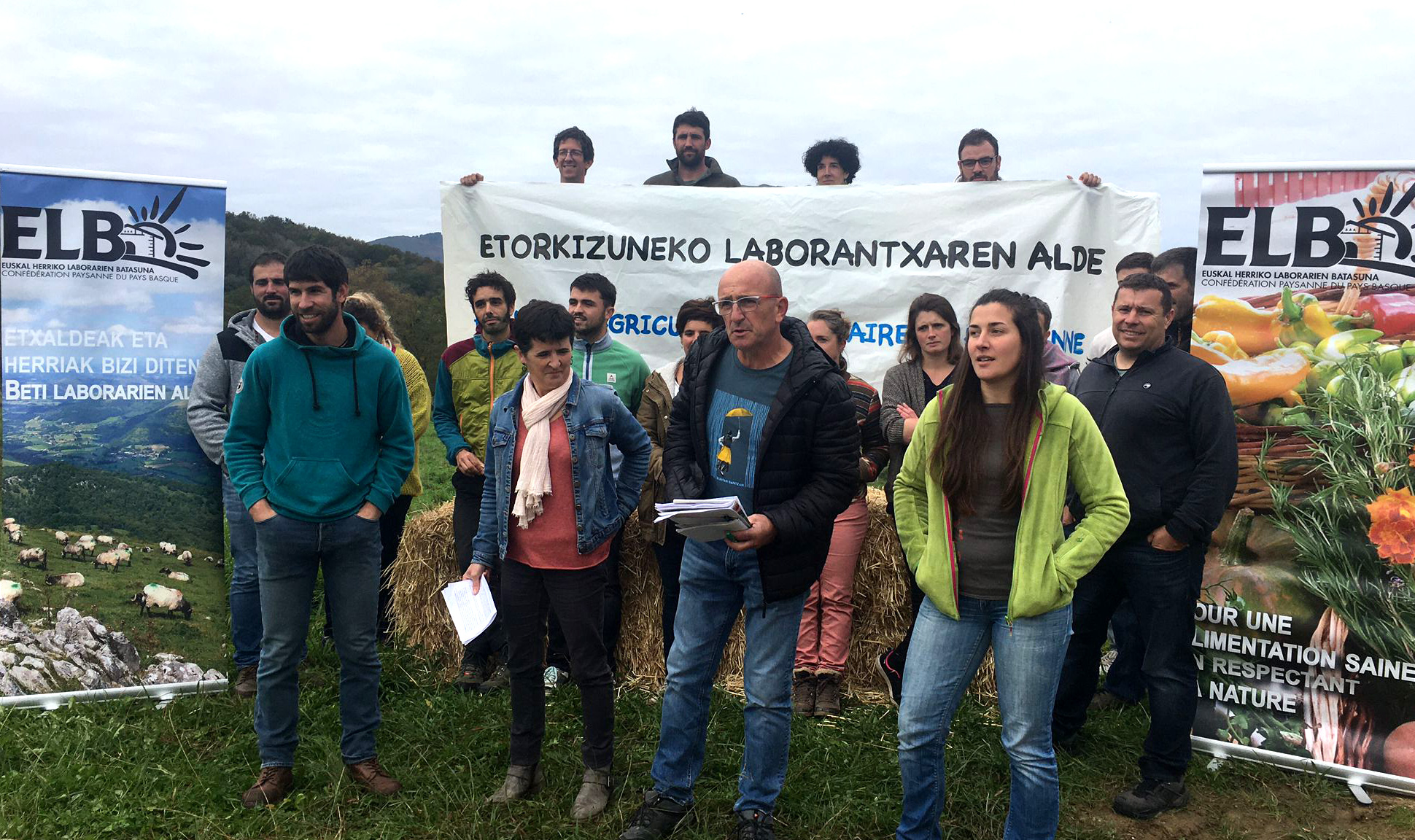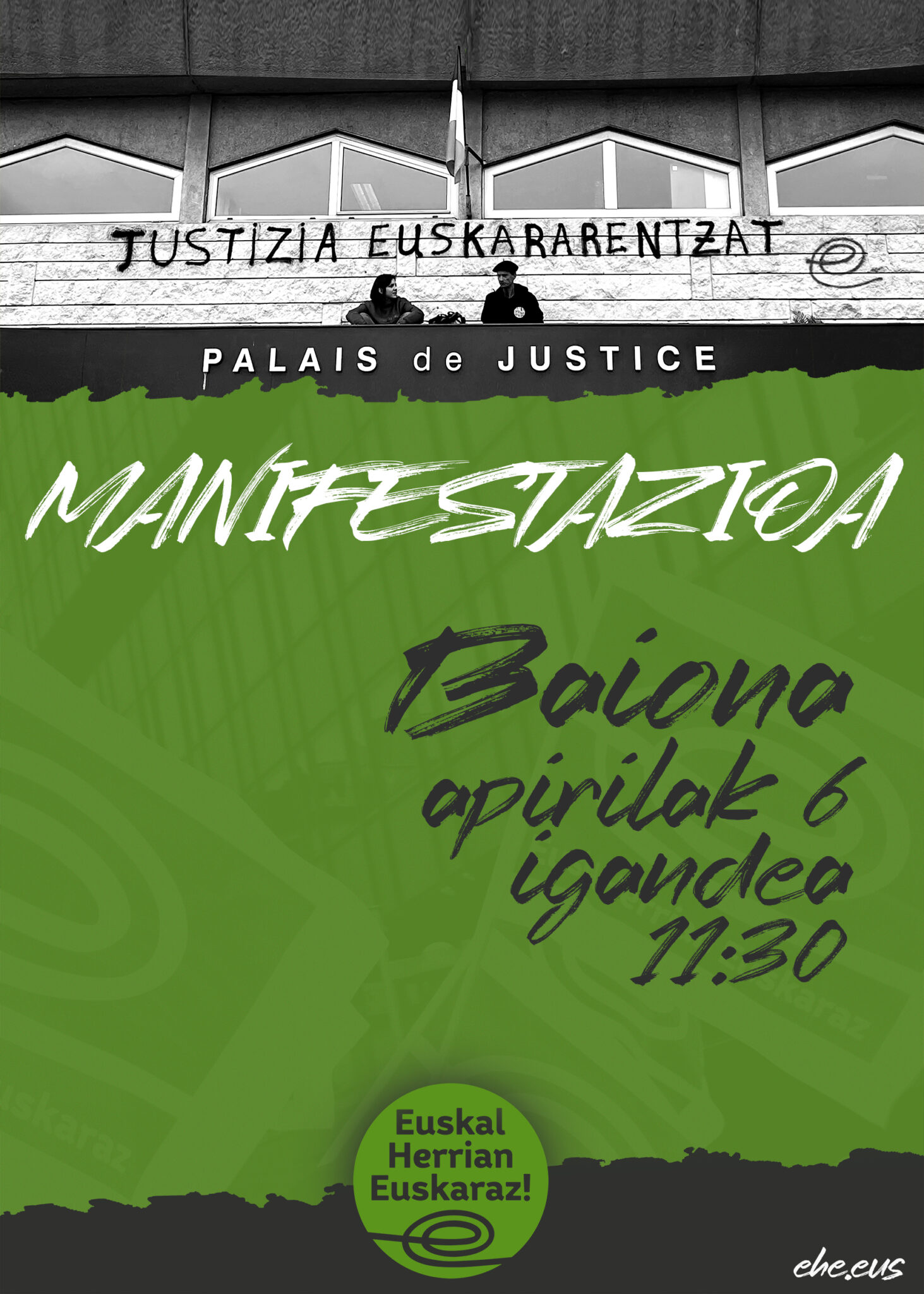Without fear of creating
- We launched to Zuberoa to watch the recording of the movie Xora. Following the motto of the Hebentik association “Jinkoak egin dütüt.. eta desegin” and we assume the motto “Xiberoa zinez… and auzolanez”. We have drunk the artistic spirit of Peio Cachenaut, which has been provided by Mixel Etxekopa.
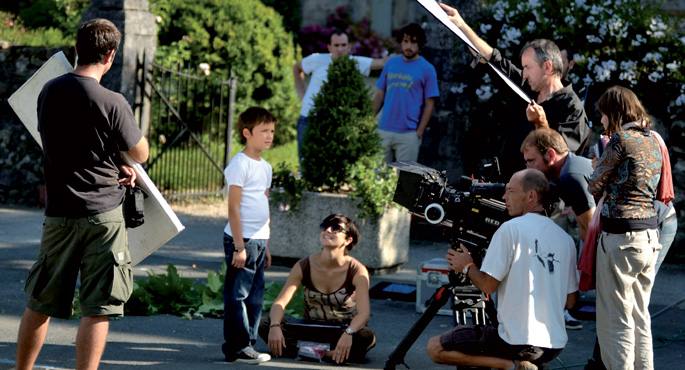
We are in Maule Square, at the Café des Allées Dédé. More than half a day has already gone. At the inn, Peio Cachenaut, soul and director of Xora. The group that rolls with him – some fifteen people – is practically complete. Tittika Rekalt is one of the main actresses of the series. Rekalt is in the Boraz cage, with a character called Hollywood. The filming has already reached its seventeenth day of filming in this edition.
Actors and figurants are in place. "Action! ", the director screams. We're on the scene. “X (this is what is called the character that plays Jeff Goinext) is supported by the slogan of hostery, lost bias. Nerea's girlfriend (Xantiana Rekalt) has approached her unexpectedly from the outside. The mysterious black man walks on stage.”
The exterior light and the darkness of the inn are the forearm and flickering of the scene, the brightness of Xora's soul: “The time has come to roll, but for me the most important thing to roll is prep. We’ve internalized the ‘language’ that we want to use, but now, really, we’re doing it unknowingly,” the film’s director told us before taking action. Rodar is experimenting for Cachenaut. Here's your experience: “The steps we have imagined beforehand have to be renewed in the task. The hardest thing is to check whether our intentions are real – feasible. Certainly, because we don’t know if we will get to what we want to do.” Time, scenario changes, contingencies and occasional uncertainties can affect the conception of the film and force it to make concessions. The shooting started with the concern of surrender: “However, the enthusiasm of the team has awakened the skill of each and we have made few concessions,” Cachenaute tells us. Trust the team fully: “We are forced to live moments of tension, but a point of tension is necessary.” The bad weather of July had laid the atmosphere. They started rolling and went through the rain for two nights in a row. “Thanks to the great work of Joana (Deputy Director Joana Asurmendi) we have not lost the rhythm of filming, we adapt to the minimal sequences”.
Writing is personal, it's done in solitude. Cinema is a teamwork: “I am a group utopist. Utopia helps make it impossible. Aulne Carite (Photo Director) is optimistic. He who sees the positive side of the emergency. Juana is prrealistic. If we are all absolutely realistic, we will hardly be able to achieve what is planned.” In Peio's opinion, the three personalities are necessary for the team to be productive. They repeat for the umpteenth time the sequence that is rolling in the inn of Dédé: “Xoran is record sixteen times. It is believed that the record number of professional filmmakers has risen to over a hundred sequences. Quiet, well,” we heard Mixel Etxekopar.
Delicate transmission
Etxekopar, representative of the Hebentik association, explained the film: “One of the two protagonists is Euskaldun berri, the other is old. Xora talks about the transmission of Euskera, but not just that. It talks about the transmission of culture and the way of life, the sovereignty of individuals and the life experience.” The relationship between professor Xoran and professor is the guiding thread of the literary theme. The sovereignty of the two protagonists is in question: “What is learned and what is taught. How does it show up? As important as ‘what’ is ‘how’.” As it is the first Sulatina film, we have suggested its exotic aspect: “You don’t have to exaggerate. The film will not bring anything special. It may reflect more cruelly the pain that we have in our guts. The work of art is not created without pain, to create is to give birth. That is the function of art.” Transmission is a delicate issue in Euskal Herria, and what to say in Zuberoa. In the stomach of the Sulatins there is pain, as in most families the transmission of Euskera has been interrupted.
Maule to Heleta
From Maule Square we head to Heleta Square in the shadow; from the Dédé Inn to the Trabouls theatre company. We will see in action Maddi and Xelin Oihenart Xoran, who are in charge of playing the song argizagi ederra. We're going to shoot the Oihernitas. We've taken advantage of the march to understand Xora's details.
Xora's director's passion for film is literature. William S. Burroughs has had a great influence on Peio Cachenaut. Burroughsen was marked in his youth by the experimental novel Naked Lunch. It is a novel of initiation – and on the way – for Sulatvian filmmakers. Burroughs was a friend of poet Allen Ginsberg. The two closest to the filmmaker Jack Kerouac. Kerouac is the author of On the Road (we are also on the way). These creators are the feeders of Peio's soul, the models of experimentation, the pioneers of the Collage technique, the contemporaries of the Beat Generation. Those and many others. David Lynch, for example.
I'm a travel companion for the director of Zuberotarra. We go “on the path of dreams.” David Lynch is a reflection of dreams, secrets and mysteries. Cachenaut also wants to simulate and explore these aspects. In Xora there is a frustration he has to write: “Writing is an impossible task for me. Writing seems simple, but it's very complicated." Writing is the most dignified task for this author who has just started working in film. He's read a lot about literature and film. It comes to the movies through fantastic, police and horror movies. Animated bands and novels have brought him to be interested in film. Their imagination is due to the readings of youth. He likes Author Movies: “But it’s nothing more than going into practice.” He has been discharged from scientific studies (Biochemistry), not letters. He is General Advisor for Education at the Maule Rural High School. Maule is its city and its natural environment. Adolescence and youth were there and in the surroundings, Muskildi and Urdiñabarne. She's been a dancer. Specialist in pastoral and masquerade. The step he has taken to reach Xora could not do it outside Zuberoa. Neither in Baiona nor in Donostia, for example.
He is 32 years old, his mother is from Barkoxe and his father is from Itsasu, in Lapurdi. He lost the Basque. The language of the parents is shy to speak, speaks frankly, is afraid to be wrong: “Dad and mom spoke to me in Basque and I answered them in French. I have not made enough effort to retain the Basque. It’s sad to say, but I fell in love with French.” It is devoted entirely to literary and French language: “If you develop your thinking in one language, you move away from the other weaker language. You have a medal."
We go back to fiction, to the world of the Xora. “Xora is vertigo and also illusion.” Peio lives these days of madness and madness. You're not sure you're going to win the game and win the luck: “We are not specialists, but we comply with the minimums. I had a general idea of what I want to do and how I want to get it. I've made mine the contribution of the actors who play the characters. I mean, I'm not alone." Before writing the script, the character of Rekalda (Hollywood) was in his head: “I didn’t see anyone else in her role, it’s necessary. In filming, it's a rogue, a pure diamond. Jeff (character X) is more complicated. It's a hot, cold X Hollywood." X is the one that appears most in the movie, and I had no experience, not even in the theater. Tittika is a piece written and played by the pastoral: “Jeff’s work is a pure experience, but I’ve known him very well since adolescence. He has too much intelligence to do what I ask of him.” Xoran doesn't have many texts. The director wants the image to speak. He doesn't even like to highlight the music. “I want to convey with images, with gestures of people. Even without music, I’d like people to understand what we want to convey.”
I'm looking for the car and listening to Peio. I imagine Charles Chaplin and Buster Keaton, among others. Rekalt is Charlot and Goienexpe is Keaton: “The worst thing that can happen to film is to make a filmed theater. As interviews were introduced in the history of film, the image was lost, as well as the interpretation of the actors. Chaplin overcame that transition, Keaton didn't. Keaton didn’t do anything in the movies anymore.”
Peio Cachenaut has defined his prime opera as: “Xora talks about what prevents us from creating. We have a tremendous fear of not being up to our previous creators, of not giving them their size. In my humble opinion, we don't have to be afraid to create, we have to learn to live with the range we give. We have to create on the basis of our ethics and morals.”
The motorist has followed “the way of dreams”, looking for David Lynchen’s film Mulholland Drive, and looking for Xora’s dreams, secrets and mysteries. We have seen the Oihenart roll, mother and daughter; Argizagi ederra kantari: “A beautiful cirio, make the light. I still have a long way to go. Tonight I'd like to find her. Delude me to your violence.”
Xoraren Script Suzzanne Tatte takes a note to finish: “Cinema is a lot of tasks that seek an answer, the answer is cinema.”









